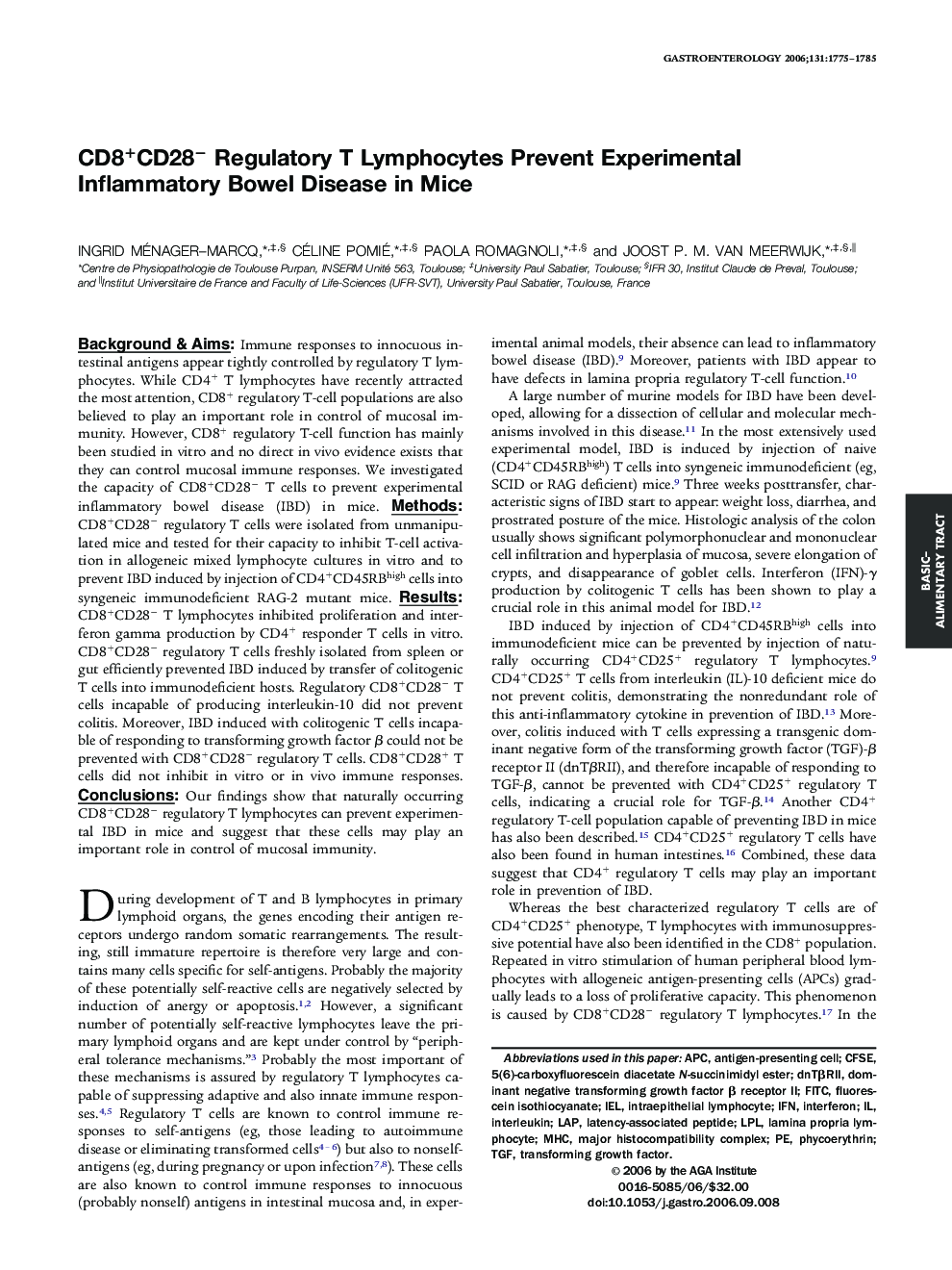| Article ID | Journal | Published Year | Pages | File Type |
|---|---|---|---|---|
| 3299616 | Gastroenterology | 2006 | 11 Pages |
Abstract
Background & Aims: Immune responses to innocuous intestinal antigens appear tightly controlled by regulatory T lymphocytes. While CD4+ T lymphocytes have recently attracted the most attention, CD8+ regulatory T-cell populations are also believed to play an important role in control of mucosal immunity. However, CD8+ regulatory T-cell function has mainly been studied in vitro and no direct in vivo evidence exists that they can control mucosal immune responses. We investigated the capacity of CD8+CD28â T cells to prevent experimental inflammatory bowel disease (IBD) in mice. Methods: CD8+CD28â regulatory T cells were isolated from unmanipulated mice and tested for their capacity to inhibit T-cell activation in allogeneic mixed lymphocyte cultures in vitro and to prevent IBD induced by injection of CD4+CD45RBhigh cells into syngeneic immunodeficient RAG-2 mutant mice. Results: CD8+CD28â T lymphocytes inhibited proliferation and interferon gamma production by CD4+ responder T cells in vitro. CD8+CD28â regulatory T cells freshly isolated from spleen or gut efficiently prevented IBD induced by transfer of colitogenic T cells into immunodeficient hosts. Regulatory CD8+CD28â T cells incapable of producing interleukin-10 did not prevent colitis. Moreover, IBD induced with colitogenic T cells incapable of responding to transforming growth factor β could not be prevented with CD8+CD28â regulatory T cells. CD8+CD28+ T cells did not inhibit in vitro or in vivo immune responses. Conclusions: Our findings show that naturally occurring CD8+CD28â regulatory T lymphocytes can prevent experimental IBD in mice and suggest that these cells may play an important role in control of mucosal immunity.
Keywords
Related Topics
Health Sciences
Medicine and Dentistry
Gastroenterology
Authors
Ingrid MÃnager-Marcq, CÃline PomiÃ, Paola Romagnoli, Joost P.M. van Meerwijk,
